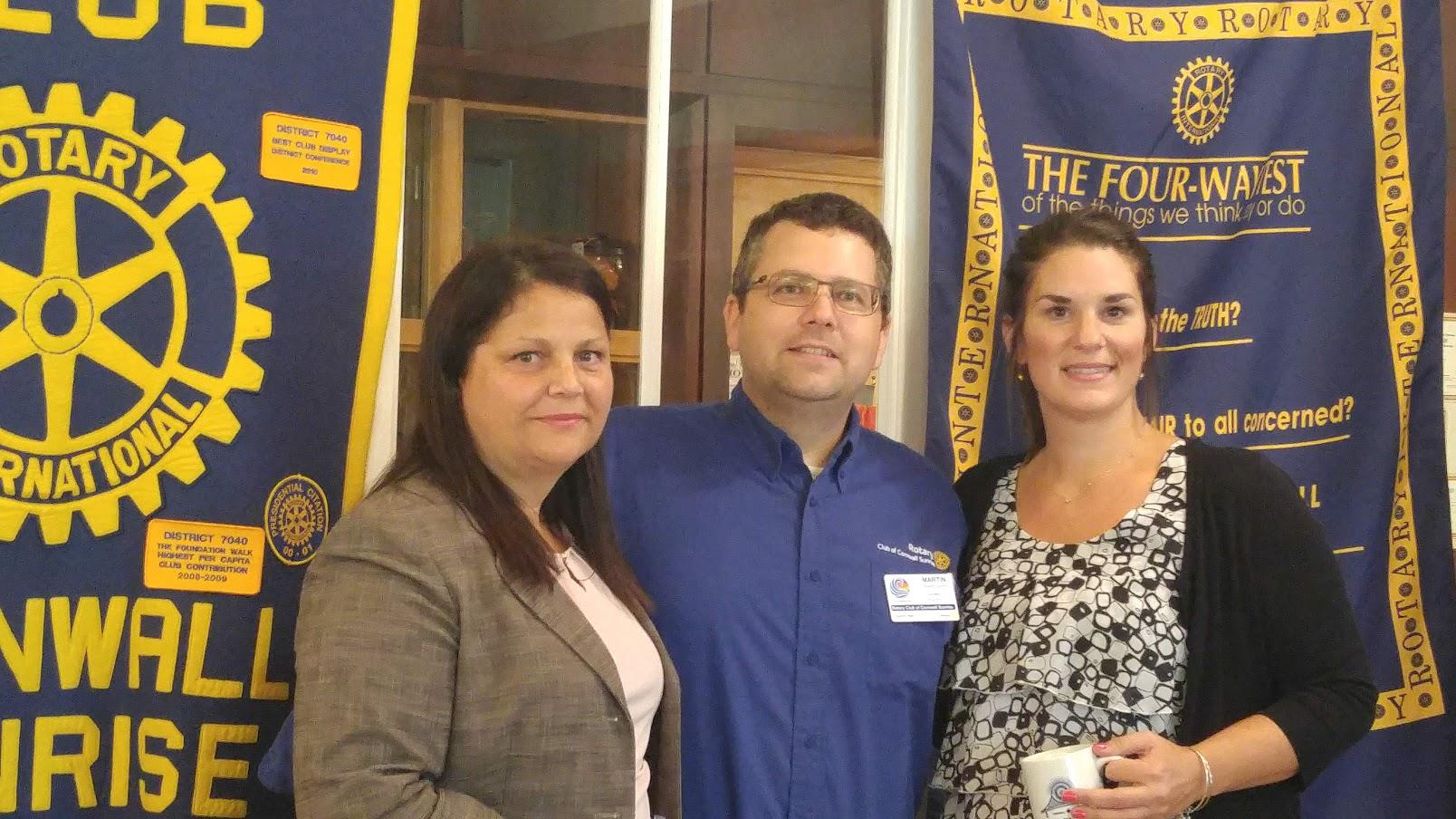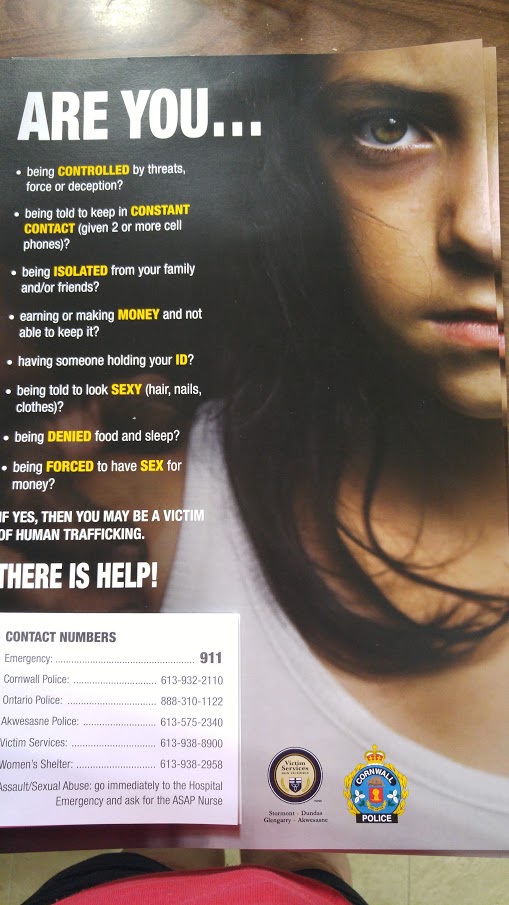
Many people think of slavery as a thing of the past; however it shows its ugly face in the form of human trafficking, also referred to as “modern day slavery”. Human trafficking be definition means to recruit or transport someone (the act) by forcing them, using fraud or coercion (the means) for the purpose of sex acts or labor services (the purpose). Often confused with human smuggling which is a business transaction between all parties, human trafficking is alive and well in the City of Cornwall and the three United Counties and is an on-going issue for law enforcement and other community agencies.
Now is the time to learn more what we can do to recognize and help prevent this "Modern Day Slavery".

On March 28-29, 2018 a 2 day conference took place in Cornwall in order to provide enhanced human trafficking training to law enforcement officers, prosecutors, hospital personal, and other front line staff. Tallon, one of the planning committee members said “Working collaboratively is essential so that we can effectively identify victims and support them, charge traffickers and successfully prosecute human trafficking cases.”
As a result of this multi-faceted problem and growing concern in the community, a local task force has been created to tackle this issue and make our community youth safer by not only providing training to front line workers but also by providing public education in the schools, and to other stakeholders. Community members include members from the Cornwall Community Police Service, Parole and Probation Services, Royal Canadian Mounted Police, Akwesasne Police Service, Victim Witness Assistance Program and Victim Services, to name a few.
Through on-going and regular meetings, committee members were able to provide a two day training seminar which saw over 120 front line workers receive training on the issue, many admitting that they have in the past dealt with a human trafficking file however resources at the time were very scarce. There seems to be an on-gong need for continued support for survivors to get the help they need, and hopefully that support will come after the public understands the struggles dealt with by not only the survivors but the service providers.
In reality, pimps pray on children as young as 12 to work in the sex trade, often recruiting at malls, high schools, and nail salons. They use intimidation and fear, threatening to tell their parents and loved ones what they are involved in and often times making them commit petty crimes and threatening to get them arrested in order to make them stay in the “the game”. One victim can earn a pimp up to $300,000 a year, making this business more lucrative than the drug and arms trade in Canada alone.
Public education is an integral part of combatting this issue; however, knowing what social media children are using also plays a role for parents to know what they are up to. Aps like Musicaly and Facebook are often used to lure victims, and should be closely monitored by parents.